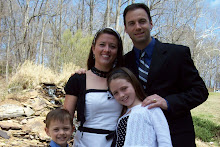Our current series is called rethink thankfulness. Here is this weeks journal info that didn't make the cut.
Thankfulness is an internal emotion created by an external force. Jesus taught us to live with a different approach. What if our thankfulness was an external response to an internal force? What would our lives look like?
One of the most challenging things about being a pastor is that I have all too often been up close and personal to witness the unevenness and lopsidedness of God’s miraculous activities.
This person misplaces his keys and prays to find them. Viola! There they are on the kitchen counter where he’s already looked twice!
That person can’t get pregnant and no amount of prayer opens her womb.
This person’s child has a fever. Her small group prays. The child recovers. God is good all the time, and all the time God is good.
That person is diagnosed with a rare blood disorder and dies a slow, miserable, painful, gut-wrenching death. His church wonders if their prayer vigil did any good at all.
This family sells their house two days after listing it…for $10,000 more than they asked. Then, they turn around and find their dream home listed for $20,000 less than they were willing to pay. He gets a promotion, and now they can afford to put the kids in private school.
That family loses their house because he was let go at work six months ago. Now they have to move in with her parents, halfway across the country. He’s starting to wonder if he’ll ever find a job.
One time there was a guy named John. He was a prophet. He was also Jesus’ cousin. And he’d seen some incredible things, heard some far-fetched stories, learned things, discerned things, revealed things. He was a good theologian and a trustworthy servant of God. And his service to God earned him a spot in Herod’s dungeon. It’s no wonder that his faith in his cousin began to waver, is it? Jesus knew what was happening, knew all about John’s situation. He wouldn’t leave John in there, would he? Jesus would show up and save the day, right? But Jesus never shows up. He’s preaching in some Podunk place or other, telling hillbillies about the Kingdom of God. John sends some of his friends to talk to Jesus, to ask him, “Are you the one who was to come, or should we expect someone else?” Jesus’ response is interesting, but it’s cold comfort. He says, “If you want some proof, how about these miracles I’m doing? People are being healed and helped. Amazing things happen everywhere I go.” And then he adds, somewhat enigmatically, “Blessed is the man who doesn’t fall away because of me.”
Taken by itself, the statement doesn’t make sense. Why would anyone fall away on account of someone doing miraculous things?
Well…if you’re the one sitting in prison, you’re the one Jesus said was the greatest prophet of all times, you’re the one who helped pave the way for Jesus’ whole enterprise, and not one miracle is coming your way…. “Blessed is the man who doesn’t fall away because of me,” he says. “You know…me…the one who does all this great stuff for seemingly everyone else but who sometimes leaves you to rot in prison.”
Sometimes, thankfulness is hard.
Sent on the Now Network� from my Sprint® BlackBerry
I am finishing a series called Unmasking Godly Character this Sunday. I have spent four weeks talking about Godly Character and have not touched some of my deepest thoughts. Here are some thoughts from my journal over the past two weeks. It is weird to hold back information but I couldn't teach what was spinning in my head through this series. I wanted to deal with the Character of God in regards to salvation. But, God’s character is multifaceted. So, in a nut shell----here is my silence.
The Bible and Christianity begins with God. In fact, some writers have suggested that the real meat of the Bible is just the first four words; everything after that is merely commentary.
The goal of the Bible is not to get you to live a different life; (or to teach you how to have better relationships) the goal of the Bible is to reveal the character and nature of God — by understanding or at least seeing God’s character and nature, we are inspired and drawn into a different kind of life. When I study, I practice a theocentric hermeneutic. That’s a fancy way of saying that, when I read the Bible, my first thought isn’t how should I apply this verse to my life but rather what does this verse teach me about God. After I have this answer I am in a position to apply the verse to my life by asking one simple question: How can I be more like him? In this series, I could not preach what I practice when dealing with my deepest thoughts.
Here was my problem. You can’t swing a stick in the Bible without hitting a verse that talks about how holy God is. It’s everywhere. In fact, some verses don’t just say, “God is holy,” they say, “God is holy, holy, holy.”
Now, when you begin trying to apply that verse to your life, you’re headed for some serious frustration — because we’re not holy. We are not able to understand what "Holy" even is----and outside of the very presence of God it is not within reach for us. From my little understanding---God’s holiness means he can’t have anything to do with impurity. It’s not that God is religiously fussy or uptight — like he gets uncomfortable and has to leave the room when something sinful happens. It’s that God and sin are mutually exclusive — like light and dark. Where one exists, the other is absent.
God can’t have anything to do with impurity on account of his holiness. But we’re shot through with impurities — impure actions, thoughts, motives, you name it. So, you can see how this might be a problem, right?
Now, here’s where I think we often get off track in explaining what Christianity is and what Christians believe.
We understand that God is holy, but he’s not only holy. He’s other things, too. The characteristics of God we choose to focus on after his holiness lead us to present this need for salvation in a particular way.
For example, if we move from God’s holiness to God’s wrath (because God is holy, he gets angry at impurities), well, we’re likely to say that salvation is being spared from God’s wrath which will be poured upon people in hell.
If, however, we move from God’s holiness to God’s love (because God is holy, he longs to love us but cannot because we’ve separated ourselves from him), well, we’re likely to say that salvation is being saved from that separation, bringing us into a relationship where God can lavish his love upon us.
If we move from God’s holiness to God’s power, we’re likely to say that salvation is being saved from our own helplessness and empowered to live with a whole new operating system.
You can see how this has implications. God’s character is multifaceted. The characteristics we choose to focus on most will determine the way we present the need for salvation and its implications.
Question: Why do so many focus on his wrath but not his mercy? On the other hand, why do some folks tend to soft-sell his wrath? Which characteristic do you think should follow holiness?
Donnie Smith
Archives
Kylie

Clayton




